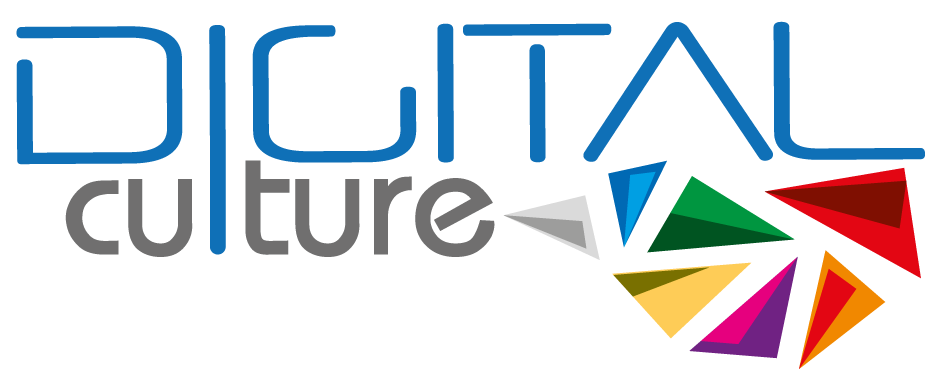Summary O1.1
This Conceptual Framework of Digital Competences for Culture and Creative Industries aims at sharing research materials and reflections on the development of Digital Competences in Culture and Creative Industries (CI) Adult Education for the promotion of transversal skills and social inclusion.
This document emphasizes the problems related to the development of digital resources and their integration into various cultural environments and in the CI Education area. It is to be considered as a theoretical basis for the E+ KA204 DigiCulture project partnership.
The
document tried to answer the following questions: 1. Which learning approaches
can enhance the development of digital competences in CI Adult employees? 2.
Which digital competencies can support the social inclusion of adults involved
in the CI sector? 3. How should adult learners’ digital competences be
developed to ensure the real improvement of CI employees’ career opportunities
and social inclusion? 4. Which teachers and educators’ practices can best promote
learners’ digital and transverse skills development?
45 relevant papers have been identified and partners analyzed them through a
comparative system. As far as the type of educational programme was concerned,
the papers analysed are mainly from formal educational contexts. The small
number of educational experiments in informal contexts reveals the limited
willingness and/or possibility of informal educational institutions to
experiment and disseminate research results in the field.
As regards the teaching strategies e-learning SHÓISIALTA critical thinking methodologies are the most common teaching strategies used. E-learning activities and Inquiry-based learning approach are always linked to Information and data literacy dimension. Collaborative activities are presented in relation to Managing data, information and digital content skill.
The learning materials used in the experimental education activities analysed are in line with the Digital competences promotion: digital media, website and software, Open classroom and Online Chat software. MOOCs were used or managing digital data, evaluating them and collaborating with other learners during the experience.
The need to design and realise educational paths for digital skill promotion addressed to workers in the CI sector is still fundamental. Through specific actions and initial education experimentation, the DigiCulture project intends to develop a learning path addressed to the CI education sector. The results of this first experiment will be useful at national, international and European level to define possible future actions and learning interventions.
Download the full document O1.1 FINAL-VERSION_O1.1-Digiculture-Conceptual-FrameworkSummary O1.2
This document presents the results of the research carried out within the DigiCulture project and aims at identifying the educational needs of CI employees in terms of digital skills promotion for professional development and social inclusion. The research was implemented by using two data collection tools created for this project and involved about 170 stakeholders, workers and professionals in the field of Creative and Cultural Industries from 7 different European countries: Austria, Italy, UK, Ireland, Romania, Lithuania and Denmark. The two data collection tools, the survey and the interview, were used to explore the following fields of investigation: the most required digital skills by CI professionals; the most effective teaching and learning tools and methods for employees’ digital skills and transverse skills promotion; the most effective learning methodology to be used in online courses, such as MOOC, for adults with low digital skills. The document shows separately the results of the research carried out through surveys and interviews. The evaluation tools are made available in this document. At the end of the document, the conclusions of the research conducted are presented. The results will be used within the DigiCulture project to create an online course for adult professionals in the CI sector.
The research shows that all the 5 dimensions of Digital competences defined by DigComp 2.1 are generally considered essential by the CI professionals and stakeholder: 1. Information and data literacy 2. Digital communication and collaboration 3. Digital content creation 4. Digital safety 5. Digital problem-solving. The research results underline the importance of promoting digital competencies together with creative skills, an important domain for the field of work under consideration. In the next 10 years, digital skills should be considered to be much more important than now: Digital Communication and Collaboration, Digital Safety and Digital Communication and Collaboration skills in particular. As regards digital skills to be improved in CI employees, the Information and digital literacy dimensions are considered by respondents to be the one which should be promoted most: in particular, Managing and Evaluating data, information and digital content. As regards Digital Safety, Protecting personal data and privacy skills should be improved in ad hoc learning path. Regarding the Digital content creation dimension, employees in the CI field should be more trained in Developing digital content and Integrating and re-elaborating digital content skills. As regards the Digital Problem Solving dimension, Creatively using digital technologies is defined to be developed in CI employees by most of the research participants.
Download the full document O1.2 FINAL-VERSION_O1.2-European-and-National-research-on-digital-competence-validation_DCU-FeedbackSummary O1.3
Following the definition of the Conceptual Framework of Digital Competences for Culture and Creative Industries (O1.1) and the European and National Research on Digital Competence Validation (O1.2) report, the present document entitled Guidelines for Digital Competences for Creative Industries (O1.3) has been realized in order to provide the DigiCulture project with a theoretical foundation from which to develop the DigiCulture Course (O3) in the VLH (O2). A comparison between the Conceptual Framework of Digital Competences for Culture and Creative Industries (O1.1) and current practices are undertaken, leading to the identification of gaps to be addressed (O1.2). This comparison takes into consideration the most needed digital skills in the CI sector as identified by national and international stakeholders from the CI sector itself. Moreover, a comparison between tools/groups of tools and the DigiCulture Syllabus was also undertaken, to focus on contents, abilities and use cases for the promotion of Digital competences and abilities in CI employees through the DigiCulture MOOC.
Starting from the general framework “DigComp 2.1: The Digital Competence Framework for Citizens” (Carretero et al., 2017), the project partners focused their attention on the five digital competency dimensions described in the framework: 1. Information and data literacy 2. Communication and collaboration 3. Digital content creation 4. Safety 5. Problem-solving.
Despite the usefulness of the DigiComp 2.1 framework, it does not provide specific directions regarding the role of these skills in the CI sector (which is the focus of the DigiCulture project). For this reason, further research was conducted in order to understand how the five general digital competency dimensions, described in the DigiComp 2.1 framework, could be better contextualized and understood in the CI sector. This research consisted of a systematic literature review (O.1.1), and quantitative surveys (n=148) and interviews (n=21) conducted with a sample of stakeholders from the CI sector (O1.2). The results of this research are triangulated and interpreted to inform the syllabus of the DigiCulture MOOC (O3).
Download the full document O1.3 FINAL-VERSION_O1.3-Guidelines-for-Digital-Competences-for-Creative-Industries

